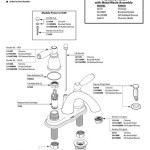Do I Need a Permit to Add a Bathroom in My Basement?
Adding a bathroom to a basement is a popular home improvement project, increasing property value and enhancing functionality. However, before commencing such an undertaking, homeowners must understand the legal requirements surrounding building permits. Permitting processes protect both the homeowner and the community by ensuring construction adheres to safety and building codes.
Generally, a permit is required for adding a bathroom in a basement. This requirement stems from the complexities involved in such a project, which often necessitates modifications to plumbing, electrical systems, and structural elements. These modifications can significantly impact a home's safety and integrity if not executed correctly.
Building codes dictate specific standards for plumbing fixtures, ventilation, electrical wiring, and structural support in bathrooms. These codes ensure adequate drainage, prevent water damage, guarantee proper ventilation to mitigate mold growth, and ensure electrical safety, preventing fires and electrocution. Structural requirements ensure the added weight of the bathroom does not compromise the foundation or overall stability of the house.
Permitting processes involve submitting detailed plans of the proposed bathroom to the local building department. These plans typically include blueprints outlining the layout, plumbing diagrams, electrical schematics, and structural specifications. Licensed professionals, such as architects, engineers, or experienced contractors, often prepare these plans. The building department then reviews the submitted plans to verify compliance with all applicable building codes and regulations.
Inspections are a crucial part of the permitting process. Throughout the construction phase, inspectors from the building department visit the site to verify that the work conforms to the approved plans and adheres to building codes. Typical inspection points include plumbing rough-in, electrical rough-in, framing, insulation, and final fixture installation. These inspections provide assurance that the work is being completed safely and according to approved standards.
Failure to obtain the necessary permits can result in significant consequences. Homeowners may face fines, be required to halt construction, or even be ordered to demolish unpermitted work. Furthermore, unpermitted work can create issues when selling the home, as potential buyers may be hesitant to purchase a property with unpermitted modifications. Title insurance companies may also refuse to provide coverage for unpermitted work, leaving the homeowner liable for any future issues arising from the unauthorized construction.
The specific permit requirements and processes can vary depending on local jurisdictions. Some municipalities may have stricter regulations or more complex procedures than others. Therefore, it's crucial to contact the local building department before starting any basement bathroom project. The building department can provide specific information on required permits, necessary documentation, inspection procedures, and associated fees.
While obtaining permits and navigating the approval process may seem daunting, it is a vital step in ensuring the safety and legality of a basement bathroom addition. Working with experienced and licensed contractors can simplify this process. Reputable contractors are familiar with local building codes and permitting procedures and can guide homeowners through the various stages of the project, from obtaining permits to scheduling inspections.
Beyond legal requirements, obtaining permits offers additional benefits. Permitted work provides peace of mind, knowing the construction meets safety standards and has been inspected by qualified professionals. This can protect homeowners from future problems and potential liability. Moreover, permitted renovations typically increase the resale value of a home, as they demonstrate compliance with building codes and provide assurance to potential buyers.
Several resources are available to assist homeowners in understanding permitting requirements and navigating the process. Local building departments often provide helpful information on their websites or through phone consultations. Professional organizations such as the National Association of Home Builders (NAHB) and the International Code Council (ICC) also offer resources and guidance on building codes and permitting.
Ultimately, adding a bathroom to a basement is a valuable home improvement that requires careful planning and adherence to legal requirements. Understanding the importance of permits and taking the necessary steps to obtain them ensures the project is completed safely, legally, and to the highest standards.
By understanding the permitting process and working with qualified professionals, homeowners can transform their basements into functional and valuable additions to their homes while safeguarding their investment and ensuring the safety of their families.

Do You Need Permits To Remodel A Bathroom Sweeten Com

Adding A Bathroom To Basement Pros Cons Costs

Adding A Basement Bathroom What You Need To Know Make It Right

How To Add A Basement Bathroom Process And Tips
Do You Need A Permit To Remodel Your Bathroom Quora

Adding A Basement Bathroom What You Need To Know Make It Right

Do You Need Permits For Bathroom Remodel What To Know In 2024 Badeloft

Permits For Bathroom Remodeling Projects Complete Guide

Do You Need A Permit To Finish Your Basement Or Not

How Much Value Does A Basement Bathroom Add Bedrock Construction Calgary
Related Posts







